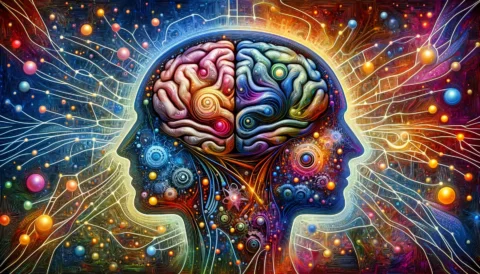Cognitive abilities are often seen as isolated strengths, each contributing uniquely to our mental prowess. However, new research suggests a surprising conflict between two important cognitive abilities: implicit statistical learning and executive functions. This finding has profound implications for how we understand and harness our cognitive potential.
The Study: Investigating Cognitive Interactions
Researchers at the Lyon Neuroscience Research Center conducted a study to explore the interplay between implicit statistical learning and executive functions. Implicit statistical learning is the unconscious ability to detect patterns and regularities in the environment, essential for tasks such as language acquisition and social interaction. Executive functions, on the other hand, involve high-level cognitive processes like planning, decision-making, and adapting to new situations, primarily managed by the prefrontal cortex.
Hypothesis and Methodology
The study was driven by the “competition hypothesis,” which posits that reliance on one cognitive system could diminish the efficacy of another. Researchers conducted two experiments with participants from France and Hungary, using the Alternating Serial Reaction Time (ASRT) task to measure implicit learning and a series of neuropsychological tests to assess executive functions. The ASRT task required participants to respond to visual stimuli, allowing researchers to gauge how quickly and accurately they could learn and predict patterns.
 Key Findings: A Negative Correlation
Key Findings: A Negative Correlation
The results revealed a consistent negative correlation between statistical learning and executive functions. Participants who excelled in tasks requiring high levels of executive control, such as complex problem-solving and decision-making, struggled with implicit learning processes. This suggests that our cognitive systems may compete with one another, with the enhancement of one potentially detracting from the other.
Implications for Education and Training
These findings challenge traditional views of cognitive abilities as isolated skills. In educational and professional settings, this research suggests the need for a more nuanced approach. For instance, individuals with strong executive functions may benefit from learning environments that also encourage implicit learning through pattern recognition and passive absorption of information.
The Role of Trust and Empathy
Understanding the competitive interactions between cognitive systems highlights the importance of social and emotional factors in learning. Trust and empathy play crucial roles in how we absorb information from others. When we trust someone, we are more open to their ideas, which can enhance learning outcomes. Educators and trainers who build positive relationships with their students can create more effective learning environments.
The study underscores the complex interactions within our cognitive systems, revealing that strengths in one area may come at the expense of another. This insight calls for a reevaluation of how we approach education and training, emphasizing the importance of balancing different cognitive processes. By fostering environments that support both implicit learning and executive functions, we can unlock the full potential of our cognitive abilities.



